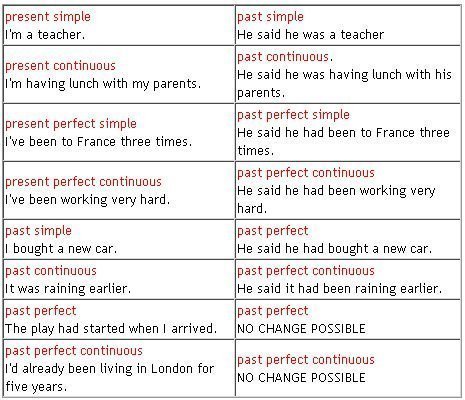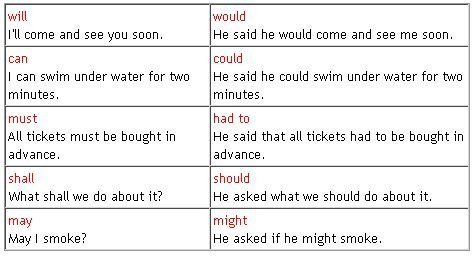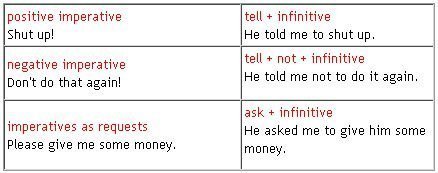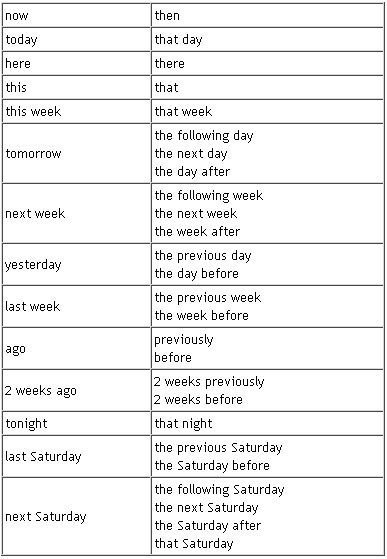Basic Tense Chart
The tenses generally move backwards in this way (the tense on the left changes to the tense on the right).

Other verb forms
Other verb forms also sometimes change:

Things are slightly more complicated with imperatives.

Time and place references
Time and place references often have to change:

Examples:
“I went to the theatre last night”
He said he had gone to the theatre the night before.“I’m having a party next weekend”
He said he was having a party the next weekend.“I’m staying here until next week”
He said he was staying there until the following week.“I came over from London 3 years ago”
He said he had come over from London 3 years before.
Personal pronouns
You also need to be careful with personal pronouns. They need to be changed according to the situation. You need to know the context. For example, there is possible confusion when you try to change reported speech to direct speech:
She said she’d been waiting for hours. (Is she one person or two different people?)
I told them they would have to ask permission. (Are we talking about two groups of people or only one?)
When verbs don’t follow the rules
The verb tenses do not always follow the rules shown above.
If the reporting verb is in the present tense, there is no change in the reported sentence. Also, a sentence in direct speech in a present or future tense can remain the same if what is said is still true or relevant. For example:
You’ve invited someone for dinner at your house, and the phone rings. It’s them! They say:
(on the phone) “This is Juan. I think I’m going to be late because there’s a lot of traffic.”
After you finish speaking on the phone, you say to someone else:
“That was Juan. He said he thinks he’s going to be late because there’s a lot of traffic.
Another example:
A friend says to you: “María’s ill. She’s got chickenpox!” You say to someone else:
“Laura said that María’s ill. She’s got chickenpox.”
However, the following day you see María at the beach. You’re surprised and say to her:
“Laura said that you were ill. She said you had chickenpox.” (This has to change to the past because it isn’t true. María obviously isn’t ill).
Direct statements in a past tense do not always change either, because a change might alter the meaning or just make it sound confusing. For example:
A friend is telling you about the horrible weather: “It started raining heavily when I left work.”
This is where things get confusing:
He said it had started raining heavily when he had left work. (It sounds horrible and the sentence is almost nothing but verbs).
He said it had started raining heavily when he left work. (It is wrong because it means it was already raining when he left work).
He said it started raining heavily when he left work. (It is the best version because it is accurate, short, and there is no confusion because of the time context).
Generally speaking, the past simple and continuous don’t always need to be changed if:
- there is a time context which makes everything clear, and/or
- there is another action already using the past perfect, which might alter the meaning or make things confusing
